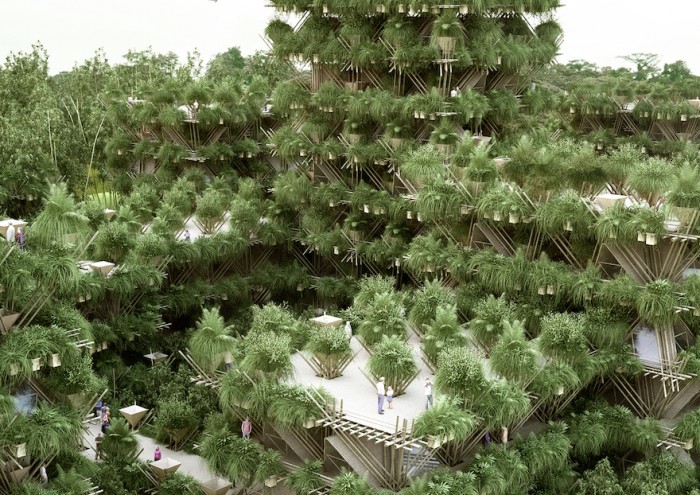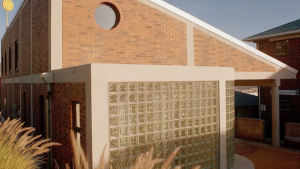
Rising Canes, a project by Beijing and Vienna-based architecture firm Penda, was first exhibited as an installation at Beijing Design Week in 2015. The structure at the event served as a prototype model of the firm’s bamboo housing concept, which outlines a built environment made out of sustainably grown bamboo and driven by community living.
Inspired by a cradle-to-cradle approach to building, the architects devised a way to build bamboo dwellings that require no fastenings, only rope secured firmly around bamboo rods. Using this construction method, the team aims to develop a communal housing complex over three storeys tall. It will accommodate 20 000 people by the year 2023.
Penda sees the development as a step-by-step process that begins with a single bamboo unit to house one family. A sustainable source of bamboo is set in motion by planting two new plants for every one cane harvested for the building process. This system allows more inhabitants to harvest building material from the surrounding bamboo grove and build onto the existing structure, eventually creating a complex of bamboo apartments as more people move in.
The greater vision is an urban village that fosters a sustainable relationship between the built environment, its inhabitants and nature. To make sure no bamboo goes to waste, the plant is also used to make clothes and certain food products in a local production facility that allows the community to develop a small economy and become more self-sufficient.
According to Penda, Bamboo is an ideal construction material. It only takes four to six years before it’s ready to be harvested, which means that it grows incredibly fast compared to the 30 to 60 years it takes for most trees to fully grow. It is also stronger than a steel beam of the same weight and can resist earthquake tremors due to its high flexibility. Another advantage is that the bamboo plants grow back after being harvested without having to replant.






